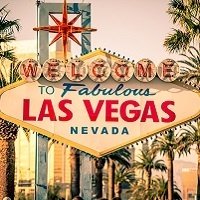Las Vegas tourism is showing signs of strain as both visitor numbers and consumer spending continue to decline. Recent data from the Nevada Department of Taxation highlights a drop in sales across several key sectors between July 2024 and May 2025, compared with the same period the previous year.
Restaurants and bars recorded nearly 11.7 billion dollars in revenue, down 1.6 percent, representing a loss of about 191 million dollars. Clothing, shoe, and jewelry stores fell by 140 million dollars to reach 4.05 billion. Motor vehicle and parts dealers slipped to 6.05 billion dollars, a decline of more than 191 million. Furniture, electronics, and appliance stores also saw decreases, falling by 28.5 million to 1.7 billion in total sales.
Industry analysts attribute the downturn to both higher costs of living and fewer visitors. The president of the Retail Association of Nevada said the combination of reduced Las Vegas tourism and inflationary pressure has cut into consumer spending, leaving businesses with a smaller pool of customers. Locals are also feeling the strain, limiting their discretionary purchases.
Tourism data confirms the slowdown. The Las Vegas Convention and Visitors Authority reported that the city welcomed approximately 19.5 million visitors in the first half of 2025, a decline of 7.3 percent compared to the same stretch in 2024. The numbers for June alone showed an 11.3 percent year-over-year drop, signaling a sharper contraction heading into the summer months.
Las Vegas tourism remains a cornerstone of the local economy, which depends heavily on visitor spending to support jobs and businesses. With Clark County’s population at roughly 2.3 million, the region relies on millions of tourists each month to sustain its hospitality, entertainment, and retail sectors. A prolonged dip in visitors could have wider consequences, including reduced tax revenue and pressure on employment.
Economists warn that Las Vegas’s dependence on tourism leaves it particularly vulnerable to broader economic uncertainty. Persistent inflation, weaker consumer confidence, and global economic challenges may continue to weigh on visitor demand. For now, the outlook for Las Vegas tourism remains cautious as the city navigates these headwinds.



